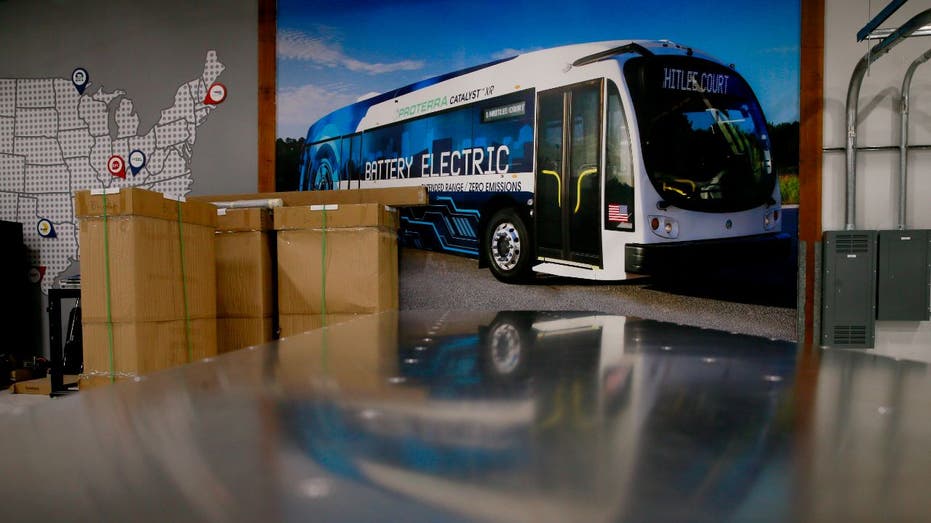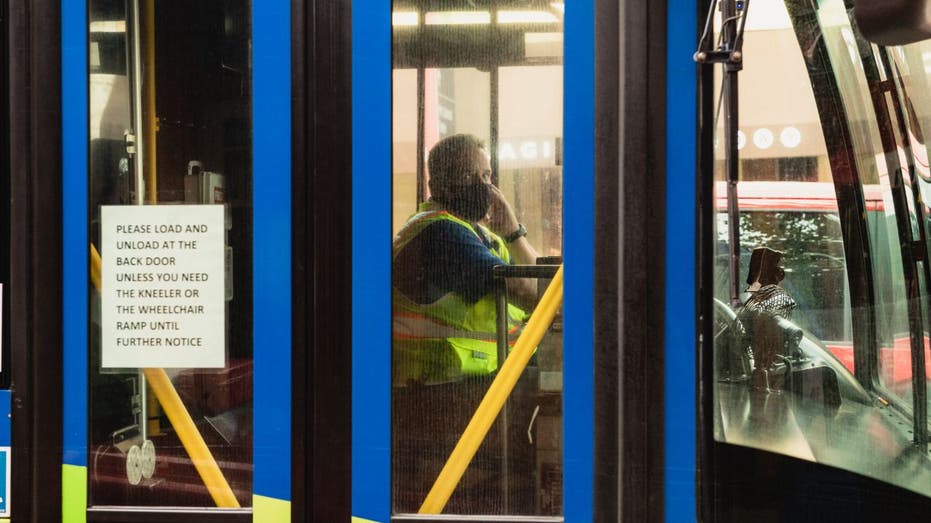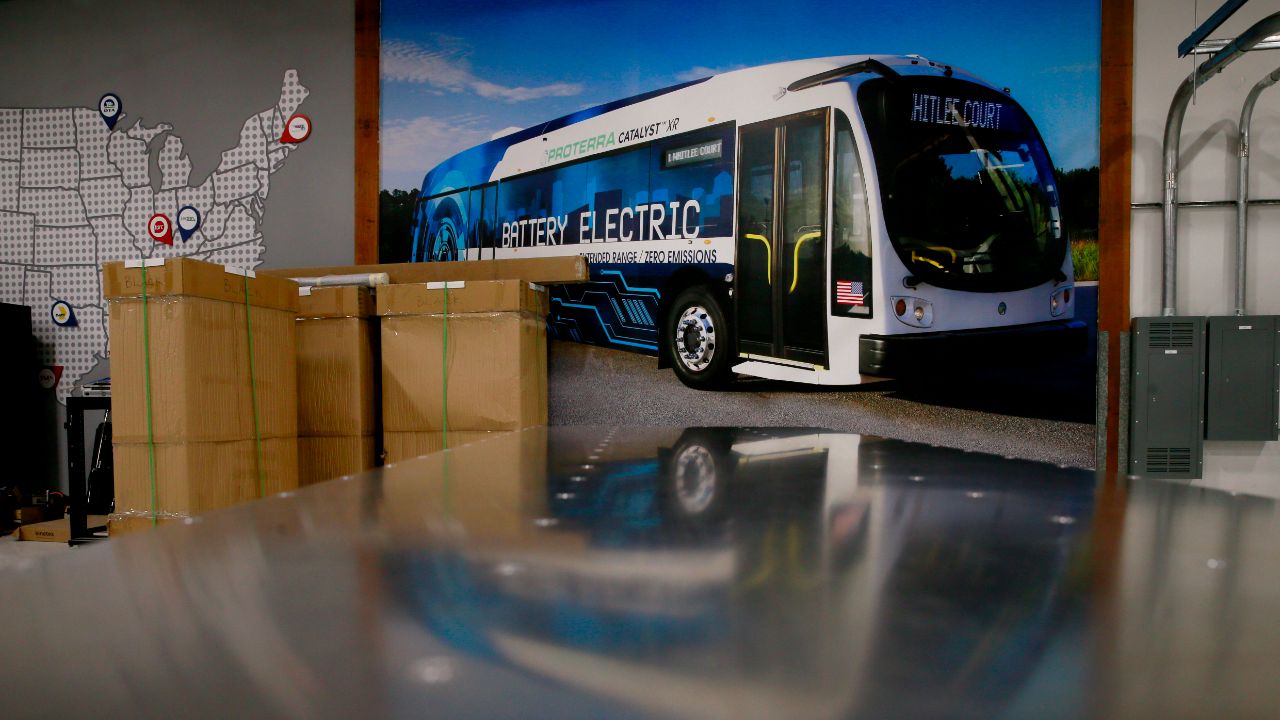North Carolina city spent millions on electric buses that don't run
3 out of 5 electric buses that Asheville bought in 2018 are sitting idle
Market isn’t built yet for EVs: Maness
Retired Air Force Col. Rob Maness discusses how he believes the rushed shift to EVs is threatening national security on 'The Bottom Line.'
The city of Asheville, North Carolina, shelled out millions of dollars in 2018 to add five electric buses to its fleet. Now, three of the five sit idle, and city employees are telling the cautionary tale.
Asheville's interim transportation director, Jessica Morriss, told local station WLOS-TV that the three out-of-commission buses are down due to a combination of software issues and mechanical problems, and one has had a broken door since July that can't be replaced.

A Proterra Catalyst XR bus is shown at the electric bus company's headquarters in Burlingame, California, on Sept. 22, 2016. Proterra filed for bankruptcy last year. (Michael Macor / San Francisco Chronicle / Getty Images)
"We haven’t been able to get new doors," Morriss told the outlet. "There's no third party that makes a door. We'd have to get custom-made doors."
Part of the issue is that the company that made the electric buses, Proterra, filed for bankruptcy in August. According to the News & Observer, Proterra's operations are still shut down. The company was recently purchased by Phoenix Motor, but it is unclear when parts and services for Proterra buses will be available.
BIDEN ADMINISTRATION ANNOUNCES $1.7B FOR LOW- OR NO-EMISSION BUSES, TRANSIT PROJECTS
"The last couple of years have been particularly difficult," Morriss said. "We don’t see an end in sight."

Asheville, North Carolina. (iStock / iStock)
In the meantime, Asheville is staring down losses from a major investment. Morriss told WLOS that each bus cost at least $616,000, and the city had to spend another $200,000 for the installation of each charger, another $118,000 every year to lease batteries for the buses, and nearly $45,500 annually in electric costs to charge them.
She also noted that maintenance costs for the electric buses have topped $250,000. At the same time, having most of the electric buses out of operation has increased wear and tear on the rest of the 32 buses in the fleet, which either run on biodiesel or are hybrid models.
ELECTRIC VEHICLE PUSH RUNS OUT OF POWER
Maintenance director John McDaniel also weighed in on the problems Asheville has had with its electric buses. He told WLOS that the two electric buses that are still in operation can only travel around 78 miles in the wintertime before needing to return to the shop and charge for hours.

A driver wears a protective mask on a bus in Asheville, North Carolina, on July 15, 2020. (George Etheredge / Bloomberg / Getty Images)
"There's some lessons here for sure," Morriss told the outlet. "We're pressing pause on investing in any electric technology until we can assure the products we get are going to be able to work."
City of Asheville spokesperson Kim Miller said in a statement to FOX Business, "There can often be unidentified issues when adapting any new technology," and acknowledged that "[p]resently, the City is not pursuing the purchase of additional fully electric buses."
GET FOX BUSINESS ON THE GO BY CLICKING HERE
"This decision stems from the need for the electric bus industry to mature and align more closely with Asheville Rides Transit's specific requirements in terms of vehicle range, reliability, size, and cost-effectiveness," she wrote. "Despite these setbacks, the City remains committed to providing transit service and exploring more sustainable and efficient transit solutions."





















